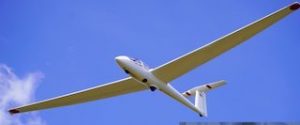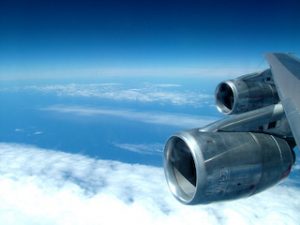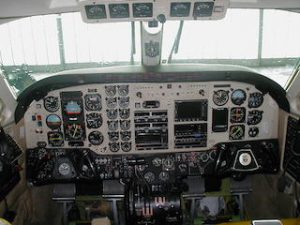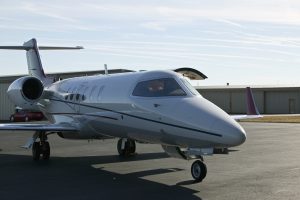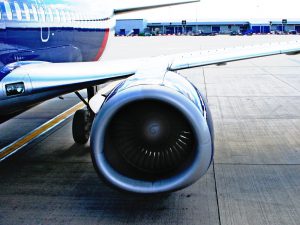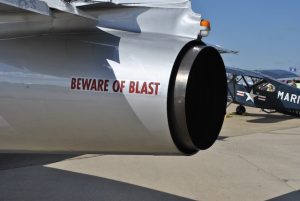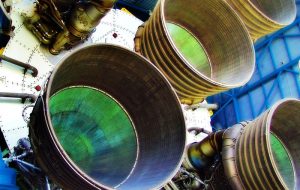Future Of AI In The Airline Industry
 The airline industry, long known for its complexities, challenges, and high operational costs, is increasingly turning to artificial intelligence to address a broad range of issues. As AI technologies continue to evolve, their impact on the airline industry is set to redefine everything from customer experience and safety to operational efficiency and sustainability. In this article, we will explore the various ways in which AI is poised to shape the future of the airline industry, examining both the opportunities it presents and the challenges it might bring.
The airline industry, long known for its complexities, challenges, and high operational costs, is increasingly turning to artificial intelligence to address a broad range of issues. As AI technologies continue to evolve, their impact on the airline industry is set to redefine everything from customer experience and safety to operational efficiency and sustainability. In this article, we will explore the various ways in which AI is poised to shape the future of the airline industry, examining both the opportunities it presents and the challenges it might bring.
AI in airline operations
One of the most significant ways AI is transforming the airline industry is through operational optimization. Airlines operate in a highly competitive environment, where even minor inefficiencies can lead to substantial financial losses. AI can play a pivotal role in streamlining various operational processes, such as flight scheduling, crew management, maintenance, and supply chain logistics.
1) Predictive maintenance
AI-driven predictive maintenance is revolutionising how airlines manage aircraft reliability. By leveraging machine learning algorithms and data from aircraft sensors, AI systems can predict when a part is likely to fail or require maintenance. This predictive approach allows airlines to perform maintenance proactively, reducing unplanned downtime, minimizing the risk of delays, and improving safety standards. For instance, AI can identify patterns that human technicians may miss, allowing for more accurate forecasts of potential issues, such as engine wear or avionics malfunctions.
2) Flight scheduling and route optimisation
Flight scheduling and route optimization are critical to an airline’s profitability. AI-powered systems can analyze a vast amount of real-time data, including weather patterns, air traffic, fuel prices, and passenger demand, to determine the most efficient flight routes. AI can adjust schedules dynamically, ensuring that aircraft are always operating at optimal times, thus reducing fuel consumption, minimizing delays, and improving overall fleet utilization. Additionally, AI can help airlines forecast demand more accurately, allowing for better alignment of flight schedules with passenger needs. This leads to fewer empty seats on flights, increased revenue, and better customer satisfaction.
3) Crew management and staffing optimisation
Crew management is another area where AI is making significant strides. Airlines must ensure that they have the right number of pilots, cabin crew, and ground staff at the right times. AI systems can analyze flight schedules, employee availability, and regulatory constraints to create optimized staffing plans that minimize labor costs while ensuring compliance with industry regulations.
AI can also assist in managing crew fatigue, a critical factor in aviation safety. By analyzing data on crew working hours and rest periods, AI can help create schedules that reduce the risk of fatigue-related incidents, ensuring that pilots and crew members are fit for duty.
Enhancing passenger experience with AI
Beyond operational improvements, AI has the potential to revolutionize the passenger experience. Airlines are increasingly investing in AI-powered technologies to enhance customer service, improve in-flight experiences, and provide personalized offerings.
1) Chatbots and virtual assistants
Customer service is one of the most visible areas where AI is making an impact. AI-driven chatbots and virtual assistants are becoming commonplace on airline websites, mobile apps, and social media platforms. These systems can handle a wide range of customer inquiries, from booking tickets and checking flight status to answering questions about baggage policies and flight delays. By automating routine tasks, airlines can provide faster and more efficient customer service, freeing up human agents to handle more complex queries.
Virtual assistants are also becoming more sophisticated. For example, AI-powered voice assistants can interact with passengers during their journey, providing real-time flight updates, answering questions, and even helping with in-flight purchases. These assistants can be integrated into mobile apps or the airline’s in-flight entertainment system, providing a seamless and personalised experience.
2) Personalised marketing and recommendations
AI is enabling airlines to offer highly personalized experiences to their passengers. By analyzing customer data, such as booking history, preferences, and previous interactions, AI systems can suggest tailored services, from seat upgrades to special meal requests. Airlines can use AI to create targeted marketing campaigns, delivering promotions and offers that are relevant to individual travelers.
For example, AI can recommend personalized vacation packages or upgrades based on a passenger’s previous travel patterns. Similarly, AI can analyse passenger feedback and social media sentiment to tailor services and ensure that customers feel valued and heard.
3) In-flight experience enhancement
AI is also improving the in-flight experience by enabling features such as dynamic seating arrangements, personalized entertainment, and adaptive cabin environments. By monitoring data from sensors and passengers’ preferences, AI can adjust cabin conditions, such as lighting and temperature, to create the most comfortable atmosphere for passengers.
In-flight entertainment systems powered by AI can also offer personalized content recommendations, ensuring that passengers have an enjoyable and engaging journey. With machine learning, these systems can adapt to a passenger’s viewing habits, suggesting movies, shows, or music that match their tastes.
AI in aviation safety and security
Safety and security are paramount in the airline industry, and AI is playing an increasingly important role in enhancing both. From ensuring the safety of passengers during flights to bolstering security measures at airports, AI is being integrated into many aspects of aviation safety.
1) AI for flight safety
AI-powered systems are already being used to improve flight safety through real-time data analysis. Aircraft are equipped with a wide array of sensors that monitor everything from engine performance to atmospheric conditions. AI can analyze this data in real time to detect anomalies that may indicate a potential safety issue. In the future, AI systems could even collaborate with human pilots to offer suggestions or take over specific tasks during flight, reducing the risk of human error.
2) AI in airport security
Security is another area where AI is being deployed to enhance safety. AI-powered biometric systems, such as facial recognition technology, are becoming increasingly common in airports around the world. These systems can streamline passenger check-in and boarding processes, reducing wait times while simultaneously enhancing security by verifying passenger identities in real time.
AI is also being used to improve baggage screening and detect potential threats more effectively. Machine learning algorithms can analyze X-ray images of baggage and identify suspicious items with greater accuracy than traditional methods. This can help reduce the chances of security breaches while ensuring a smoother and faster airport experience for travellers.
AI and sustainability in airline industry
Sustainability is an ongoing challenge in the airline industry, with aviation being a significant contributor to global carbon emissions. As climate change becomes an increasingly urgent issue, airlines are under pressure to reduce their environmental footprint. AI is playing a crucial role in helping airlines achieve their sustainability goals.
1) Fuel efficiency and emissions reduction
AI can be used to optimize fuel consumption, which is one of the most effective ways for airlines to reduce their carbon footprint. AI algorithms can analyze a range of factors, including flight paths, weather conditions, and aircraft performance, to determine the most fuel-efficient routes. By reducing fuel consumption, airlines can not only cut emissions but also lower operating costs.
In the future, AI may also be used to help airlines transition to more sustainable fuels, such as biofuels or hydrogen. AI could optimise the blending of different fuel types based on real-time conditions, ensuring that aircraft operate in the most environmentally friendly manner possible.
2) Sustainable flight operations
AI can help airlines optimize their flight operations to reduce environmental impact. For example, AI-powered systems can help airlines plan flight routes that avoid congested airspace, reducing the need for unnecessary fuel consumption during holding patterns. Additionally, AI can optimize aircraft descent profiles, allowing for a more gradual approach that reduces fuel usage and noise pollution in populated areas.
AI can also play a role in improving the design of future aircraft, helping manufacturers develop lighter, more energy-efficient planes with advanced materials and aerodynamics. By integrating AI into the design and manufacturing process, airlines can reduce their fleet’s environmental impact while maintaining performance and safety standards.
Challenges of AI integration in the airline industry
Despite the promising potential of AI, there are several challenges that airlines must overcome to fully integrate these technologies into their operations. The complexity and scale of the airline industry mean that AI solutions must be carefully designed and tested to ensure that they are both effective and safe.
1) Data privacy and security concerns
As AI systems in the airline industry rely heavily on data, ranging from passenger information to aircraft performance data, there are significant concerns surrounding data privacy and security. Airlines must implement robust cybersecurity measures to protect sensitive customer data and ensure compliance with data protection regulations, such as the General Data Protection Regulation in Europe.
2) Workforce displacement
AI’s role in automation may raise concerns about job displacement. While AI can undoubtedly improve efficiency, airlines must strike a balance between automation and the retention of human employees. Workforce retraining and up-skilling programs will be essential to ensure that employees can adapt to the new technology-driven landscape.
3) Ethical considerations
The implementation of AI in critical areas such as flight safety and security also raises ethical questions. For example, as AI systems begin to play a larger role in decision-making, questions about accountability and transparency will become increasingly important. Airlines will need to ensure that AI systems are designed and deployed in a way that prioritizes human oversight and ethical considerations.
Summary
The future of AI in the airline industry is full of promise, with the potential to significantly enhance operational efficiency, improve passenger experience, boost safety, and reduce environmental impact. From predictive maintenance and personalized services to sustainable flight operations and advanced security measures, AI technologies are set to reshape how airlines operate and how passengers interact with the industry.
However, the successful integration of AI into aviation will require careful consideration of data privacy, workforce impacts, and ethical concerns. As the airline industry continues to embrace AI, it will be crucial for companies to ensure that these technologies are used in ways that benefit both the business and the passengers, while maintaining the highest standards of safety and security.
As AI continues to evolve, it will undoubtedly drive further innovations in aviation, opening up new possibilities for the future of air travel.


